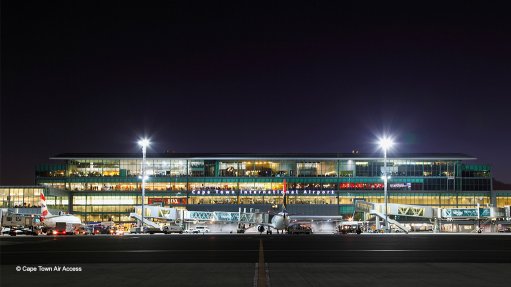Mere talk leads to poverty
Talk is cheap, because supply exceeds demand”. Should you prefer the proudly South African version – yes, there is one, first referenced in 1955 – it is: “Talk is cheap, but money buys whiskey.”
I imagine that in recent months, possibly years, you have been receiving lots of unsolicited talking (particularly about economics) that is reminiscent of the 1981 chart topper by the band Talk, Talk, with its chorus lyrics: “Talk, talk, talk, talk; All you do to me is talk, talk.”
A day after the State of the Nation Address on February 10, the International Monetary Fund released its ‘South Africa Country Report’ and on February 23 – a week after I wrote this piece – Finance Minister Enoch Godongwana was due to deliver his inaugural National Budget speech.
All this is reminiscent of the treble combination in show jumping, the last combination before the course is completed. Let me confess: I know this only because of those hot summer Saturday afternoons in the 1980s, when I was too lazy to get up and switch off the television. Yes, the days before the remote control.
I have no doubt the economic treble combination will leave one severely exasperated, but at least we now have the remote control.
In the instance of the National Budget, quite ironically, you can ‘make your voice count’. To get the context, go to ‘2022 Budget tips – make your voice count’, which is accessible at https://web.treasury.gov.za/public/Tips and reads: “As usual, the Budget allocation always aims to strike a balance between competing national spending priorities. It is in this context that the Minister invites South Africans to share their suggestions on the Budget: what should government be spending on, how to address a large Budget deficit, new sources of tax revenues, and other Budget-relevant information.”
Let’s explore the elements: ‘national spending priorities’, ‘address a large Budget deficit’, and ‘new sources of tax revenues.
The ‘Spending priorities by function’ section of the 2021 Budget Review states: “To reduce poverty and inequality, the consolidated Budget continues to prioritise social objectives, with 56.6% of allocations going to the learning and culture, health, and social development functions over the medium term.” A reminder: yearly total consolidated spending amounts to R2-trillion. “The bulk of the spending is allocated to learning and culture (R402.9-billion), social development (R335.2-billion) and health (R248.8-billion) in 2021/22.”
To ‘address a large Budget deficit’ – it is important to remember that, according to the 2021 Medium-Term Budget Policy Statement: “The R4-trillion in debt that we now owe is incurring debt service costs that will become the largest portion of spending, compared with individual functions, from next year.” We are in ‘next year’, and the number is now R4.2-trillion.
As for the ‘new sources of tax revenues’, are they national or provincial, or both? The 2021 Budget Review states: “Reducing the proportion of budgets spent on salaries will allow provinces to expand the healthcare system, build more schools and improve service delivery. Provinces will continue to reduce their costs by merging entities, improving integrated planning and exploring new revenue sources.”
Just who is going to pay the taxes? Remember, in the third quarter of 2021, unemployment hit a new record of 34.9%. However, under the expanded definition, the figure is 46.6%. As for actual taxpayers, according to a March 3, 2021, media report, 1.6-million people are paying most of South Africa’s income tax. Well, it’s actually 1.58-million, or 2.62% of the population. In the 2019/20 tax year, the South African Revenue Service noted 22.2-million registered taxpayers.
So, where will the additional taxpayers come from, and how additionally will they and the existing taxpayers be taxed? And how will South Africa’s debt be repaid?
The talking needs to stop. As Proverbs 14:23 states: “All hard work brings a profit, but mere talk leads only to poverty.”
Article Enquiry
Email Article
Save Article
Feedback
To advertise email advertising@creamermedia.co.za or click here
Announcements
What's On
Subscribe to improve your user experience...
Option 1 (equivalent of R125 a month):
Receive a weekly copy of Creamer Media's Engineering News & Mining Weekly magazine
(print copy for those in South Africa and e-magazine for those outside of South Africa)
Receive daily email newsletters
Access to full search results
Access archive of magazine back copies
Access to Projects in Progress
Access to ONE Research Report of your choice in PDF format
Option 2 (equivalent of R375 a month):
All benefits from Option 1
PLUS
Access to Creamer Media's Research Channel Africa for ALL Research Reports, in PDF format, on various industrial and mining sectors
including Electricity; Water; Energy Transition; Hydrogen; Roads, Rail and Ports; Coal; Gold; Platinum; Battery Metals; etc.
Already a subscriber?
Forgotten your password?
Receive weekly copy of Creamer Media's Engineering News & Mining Weekly magazine (print copy for those in South Africa and e-magazine for those outside of South Africa)
➕
Recieve daily email newsletters
➕
Access to full search results
➕
Access archive of magazine back copies
➕
Access to Projects in Progress
➕
Access to ONE Research Report of your choice in PDF format
RESEARCH CHANNEL AFRICA
R4500 (equivalent of R375 a month)
SUBSCRIBEAll benefits from Option 1
➕
Access to Creamer Media's Research Channel Africa for ALL Research Reports on various industrial and mining sectors, in PDF format, including on:
Electricity
➕
Water
➕
Energy Transition
➕
Hydrogen
➕
Roads, Rail and Ports
➕
Coal
➕
Gold
➕
Platinum
➕
Battery Metals
➕
etc.
Receive all benefits from Option 1 or Option 2 delivered to numerous people at your company
➕
Multiple User names and Passwords for simultaneous log-ins
➕
Intranet integration access to all in your organisation
















